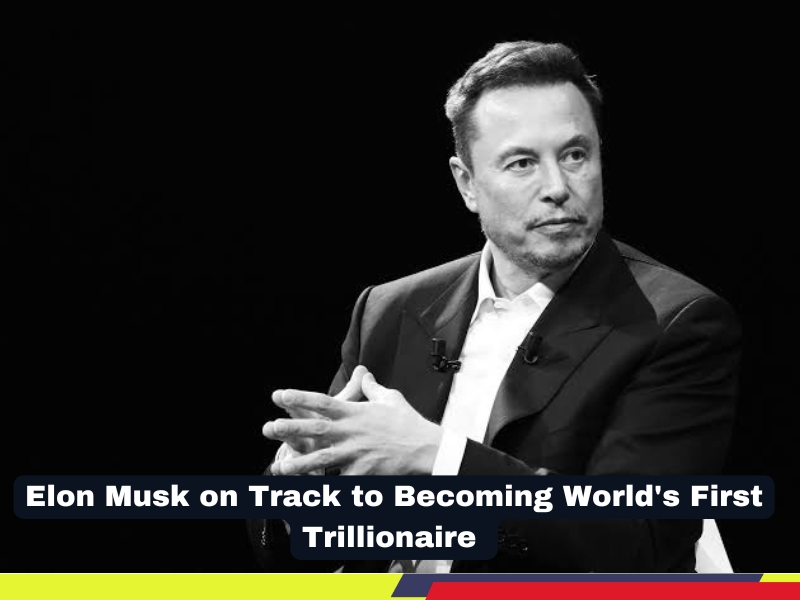Elon Musk, CEO of Tesla, SpaceX, and several other cutting-edge ventures, is on course to reach a historic milestone: becoming the world’s first trillionaire. According to a recent report by Informa Connect Academy, Musk could hit the trillion-dollar mark as early as 2027, a feat driven by his remarkable average net worth growth of 110% per year. While speculation around Musk’s ever-expanding fortune is nothing new, this prediction has sparked renewed discussions about his impact on the global economy, the nature of wealth accumulation in the tech sector, and what such a milestone could mean for the future.
The Road to a Trillion: How Musk Got Here
Musk’s journey to potentially becoming a trillionaire is a reflection of his unique approach to business, which merges audacious vision with relentless innovation. Through ventures like SpaceX, Musk has transformed the aerospace industry, making reusable rockets a reality and bringing Mars exploration closer than ever before. Tesla, his electric vehicle company, has similarly revolutionized the automotive world, helping to drive the global shift toward sustainable energy.
His ventures are not only industry disruptors but also lucrative ventures that have attracted massive investor interest. With Tesla’s stock soaring over recent years and SpaceX reaching an impressive valuation, Musk’s wealth has skyrocketed in ways that traditional businesses could hardly replicate. At a 110% annual growth rate, his net worth is projected to reach $1 trillion within the next four years, a figure that would make Musk the first to achieve such wealth in modern history.
Why Musk Is the Leading Contender
Elon Musk’s continued rise in net worth stems from the high growth rates in industries that he dominates, such as electric vehicles and space technology. As global interest in sustainable technology and space exploration increases, so does the valuation of Musk’s companies. For example, Tesla has maintained high growth due to increasing demand for electric vehicles, while SpaceX is rapidly advancing its Starlink satellite internet program, which could significantly add to its market value.
Beyond Tesla and SpaceX, Musk’s involvement in ventures like Neuralink, a brain-computer interface company, and The Boring Company, which aims to transform transportation through underground tunnels, shows that his portfolio is as diverse as it is ambitious. Each of these ventures has the potential to disrupt entire industries, contributing to Musk’s reputation as a visionary — and his potential to amass unprecedented wealth.
The Implications of a Trillionaire
If Musk becomes the world’s first trillionaire, the implications will be profound and far-reaching. His fortune would not only represent a new era of individual wealth accumulation but also underline the wealth-concentrating potential of the tech sector. Musk’s fortune, driven largely by tech innovation, shows how wealth is increasingly tied to intellectual capital and transformative ideas rather than traditional industries. The growing concentration of wealth in the hands of a few tech moguls has raised important conversations about income inequality, as these fortunes grow at rates that far exceed average economic growth.
There are also potential upsides to Musk reaching this milestone. With his wealth, Musk could accelerate research and development in fields that many governments or private companies find too risky or expensive to explore. Space exploration, for example, requires vast amounts of capital and ambition — both of which Musk has in spades. His drive to push boundaries may unlock technologies that benefit society in ways we can’t yet foresee.
The Future of Wealth in the Age of Tech Giants
As Musk nears this extraordinary milestone, he serves as a symbol of the future of wealth in the tech-driven world. His rapid wealth growth demonstrates the transformative power of tech innovation — but also raises questions about the long-term impact of such concentrated wealth on society. While Musk’s ambitions continue to push humanity forward, it’s clear that his path to becoming the world’s first trillionaire will reshape not only his industries but also our understanding of wealth in the modern world.




